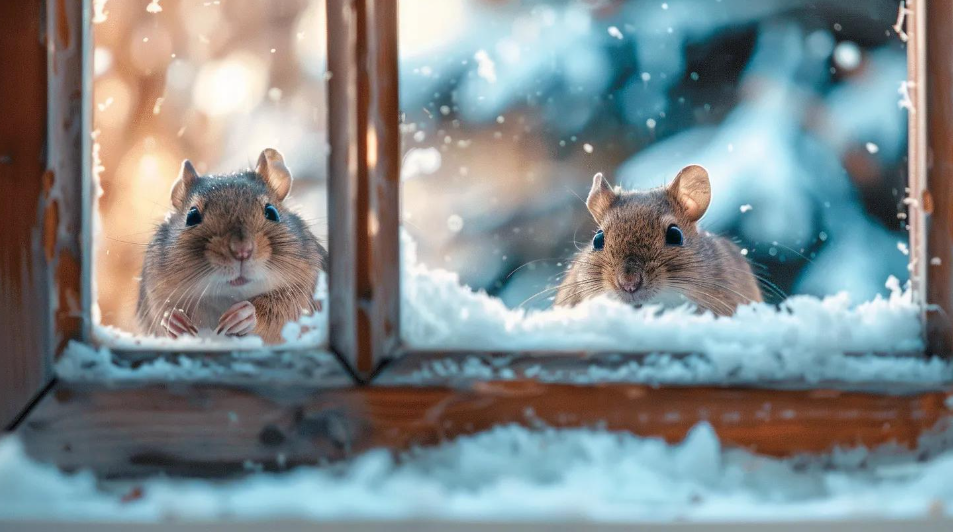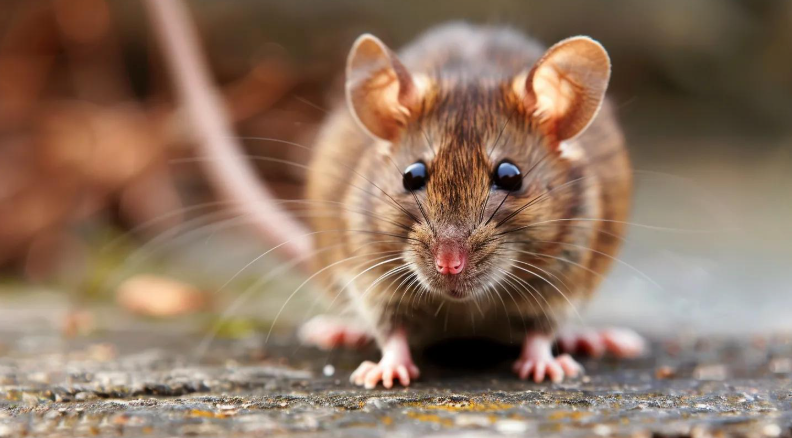Why You're Still Seeing Bugs After Pest Control (And What to Do About It)
Still seeing bugs after pest control? Don’t worry—some post-treatment activity is completely normal. This blog explains what to expect after a professional treatment, which signs mean it’s working, and when it's time to call your exterminator back. Learn the difference between normal and concerning pest behavior, plus tips to prevent reinfestation.
Post-Treatment Bug Sightings: What's Really Going On?
Here's what's normal, what's not, and when to call your exterminator back.
So, you booked a professional pest control treatment, and a few days later… bugs. Still crawling, flying, or creeping around like they didn't get the memo. Before you panic (or write an angry review), here's the truth: seeing some pest activity after treatment can be completely normal. But not always.
Let's break down what you need to know about post-treatment pest activity and when it's time to take action.
1. It's Part of the Process (For a Little While)
Professional pest control treatments disrupt pests where they live, feed, and breed. That disruption often flushes them out of their hiding places—so yes, you might actually see more insects for a few days as they evacuate treated nests, wall voids, and other harborage areas. This is especially common with ant treatments and insect control services.
🔹 What's Normal:
- Increased bug activity for 1–10 days post-treatment
- Slow-moving, disoriented, or dying pests
- Insects appearing in new areas as they flee treated zones
- Temporary increase in activity before complete elimination
🔹 What's Not Normal:
- Bugs still active and thriving 2+ weeks later
- No noticeable drop in pest numbers after initial treatment
- New infestations appearing in previously treated areas
- Pests showing no signs of distress or mortality
2. The Type of Pest Matters Significantly
Different pests respond to treatments at vastly different rates, and some require specialized approaches that take time to be fully effective.
Fast-Acting Results: Wasp removal and spider control typically show immediate results, with most activity stopping within 24-48 hours.
Slower Elimination: Cockroach control programs, carpenter ant treatments, and bed bug treatments may require multiple visits or specialized protocols—especially if colonies have had time to establish, spread, or reproduce extensively.
Pro tip: If you're still seeing live cockroaches, active ant trails, or bed bug activity two weeks after treatment, it's time to contact us for a follow-up assessment.
3. You Might Be Dealing with a Secondary Infestation
Here's something that catches many homeowners off guard: you thought it was just ants, but suddenly there are silverfish. Or you treated for cockroaches, but now there are carpet beetles. Secondary infestations happen more frequently than you'd expect in Manitoba homes—especially in older buildings, apartment complexes, or multi-family units where pest pressure is constant.
This is exactly why Valkyrie Pest Control's comprehensive inspections cover often-overlooked hotspots throughout your property:
- Attic spaces and insulation areas
- Under sinks, appliances, and plumbing fixtures
- Wall voids and electrical penetrations
- Foundation cracks and basement areas
- HVAC systems and ductwork
- Storage areas and crawl spaces
Our thorough approach is part of what sets our residential services apart from quick-fix solutions.
4. Entry Points Weren't Properly Sealed
Professional pest control eliminates the current invaders—but if the entry points remain open, new pests will happily march right back in. This is where many DIY approaches fall short and why ongoing prevention is crucial.
After treatment, these critical steps are essential:
- Seal cracks and gaps around windows, doors, and foundations
- Replace damaged or torn window screens
- Store all food in airtight, sealed containers
- Trim vegetation and branches touching exterior walls
- Address moisture issues that attract pests
- Install door sweeps and weatherstripping
Don't worry—our exclusion and cleaning services can handle these preventative measures for you, creating a comprehensive barrier against future infestations.
5. The Treatment Didn't Fully Reach the Source
Sometimes treatments don't achieve complete elimination on the first attempt. This can happen when:
- Previous DIY treatments scattered pests deeper into walls or inaccessible areas
- The infestation was more extensive or advanced than initial inspections revealed
- Hidden nests, breeding areas, or satellite colonies were missed during treatment
- Environmental factors interfered with treatment effectiveness
- Pest resistance required adjusted treatment protocols
At Valkyrie Pest Control, we don't consider the job done until pests are completely eliminated. We reassess situations, adjust treatment plans, and provide additional services when necessary—because real pest control means total elimination, not just spraying and hoping for the best.
What You Should Do Next
Still seeing pest activity after 2+ weeks? Don't wait—contact Valkyrie Pest Control immediately. We'll:
✅ Reinspect all problem areas with fresh eyes and updated assessment protocols
✅ Reassess and modify the treatment plan based on current pest activity patterns
✅ Handle any necessary follow-ups quickly and efficiently
✅ Provide additional preventative services to prevent future issues
✅ Offer specialized treatments like our low/no pesticide options when appropriate
Why Choose Professional Follow-Up Services?
Many pest control companies disappear after the initial treatment, leaving you to deal with ongoing issues alone. That's not how we operate. Our comprehensive service packages—including Viking Services, Valkyrie Services, and Valhalla Services—ensure continued support and monitoring.
We also provide specialized solutions for unique situations, including Shield Maiden Services for sensitive environments and commercial services for business properties.
🛡️ Manitoba's Trusted Pest Control Experts
At Valkyrie Pest Control, we don't disappear after treatment. Whether you're battling persistent pests in Winnipeg, Steinbach, Gimli, Stonewall, or anywhere throughout our service area, we're here to support you until your pest problem is completely solved.
Our team also serves communities including Beausejour, Arborg, Grand Marais, Victoria Beach, the Whiteshell area, and even remote locations like Flin Flon.
Ready to Solve Your Pest Problem for Good?
Don't let persistent pest activity stress you out. Our experienced team has the knowledge, tools, and commitment to deliver results that last.
📞 Call Valkyrie Pest Control today at +1 204-914-4515
🌐 Visit us online: valkyriepest.ca
✅ Serving Manitoba with expert, no-nonsense pest control solutions
Learn more about our company and explore our complete range of pest control services designed specifically for Manitoba homes and businesses. From rodent control programs to bird control solutions, we've got you covered.
More from our blog

Common Winter Pests in Winnipeg: A Closer Look at Rodents, Cockroaches, and Spiders

How Winnipeg Residents Can Prevent Rat Issues: Essential Rat Proofing Tips and Strategies








